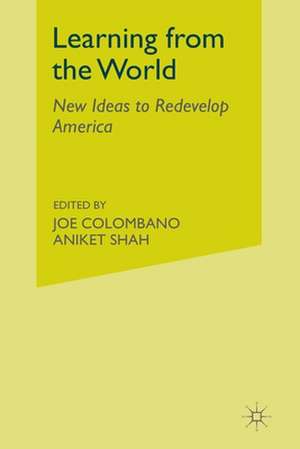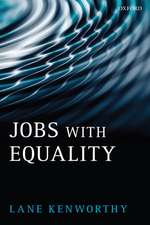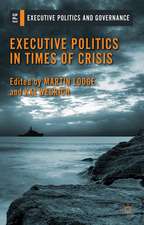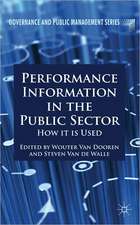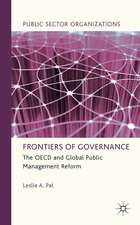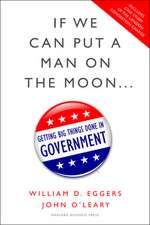Learning from the World: New Ideas to Redevelop America
Editat de J. Colombano, A. Shahen Limba Engleză Paperback – 2014
| Toate formatele și edițiile | Preț | Express |
|---|---|---|
| Paperback (1) | 390.84 lei 6-8 săpt. | |
| Palgrave Macmillan UK – 2014 | 390.84 lei 6-8 săpt. | |
| Hardback (1) | 398.35 lei 6-8 săpt. | |
| Palgrave Macmillan UK – 29 noi 2013 | 398.35 lei 6-8 săpt. |
Preț: 390.84 lei
Nou
Puncte Express: 586
Preț estimativ în valută:
74.81€ • 81.29$ • 62.88£
74.81€ • 81.29$ • 62.88£
Carte tipărită la comandă
Livrare economică 21 aprilie-05 mai
Preluare comenzi: 021 569.72.76
Specificații
ISBN-13: 9781349475995
ISBN-10: 1349475998
Pagini: 315
Ilustrații: XXII, 315 p.
Dimensiuni: 155 x 235 mm
Greutate: 0.48 kg
Ediția:1st ed. 2014
Editura: Palgrave Macmillan UK
Colecția Palgrave Macmillan
Locul publicării:London, United Kingdom
ISBN-10: 1349475998
Pagini: 315
Ilustrații: XXII, 315 p.
Dimensiuni: 155 x 235 mm
Greutate: 0.48 kg
Ediția:1st ed. 2014
Editura: Palgrave Macmillan UK
Colecția Palgrave Macmillan
Locul publicării:London, United Kingdom
Cuprins
1. Foreword: Jeffrey Sachs 2. Introduction: A New Approach to Redevelop America; Joe Colombano and Aniket Shah PART I: MACROECONOMIC CHALLENGES 3. Global Financial Integration, China, and the Role of America; Ning Zhu 4. A Lesson from the South for Fiscal Policy in the US and other Advanced Countries; Jeffrey Frankel 5. Breaking Through on Job Creation; Bill Drayton 6. Taming Deficits: Automatic Debt Breaks and Participatory Democracy in Switzerland; Thomas Held and Simon Ingold PART II: INSTITUTIONAL FRAMEWORK AND POLICY TOOLS 7. The German Labor Market in the Great Recession: Lessons for Other Countries; Felix Hüfner, Andreas Wörgötter and Caroline Klein 8. A New Housing Finance System for the US? Lessons from the Danish Model; Morten Baekmand Nielsen and Jesper Berg 9. For a National Investment Bank; Robert Skidelsky and Felix Martin PART III: INFRASTRUCTURE, INNOVATION, AND COMPETITIVENESS 10. Boosting Export Growth: Lessons from Korea; Abraham Kim and Whitney Haring-Smith 11. Smart Cities, Smart US: International Models; Nashid Nabian 12. Brazil: An Emerging Economic Power Committed to Sustainability; Emma Torres, Sérgio Besserman Vianna and Kevin Currey PART IV: SOCIAL POLICIES 13. Health for America: European Arguments for a Paradigm Shift; B. Serdar Sava? and Tomris Cesuroglu 14. Closing the Health Gap: Lessons from Africa; Prabhjot Singh 15. National Education Policy and Programs: Insights from Finland; Timo Lankinen and Kristiina Kumpulainen 16. For a Human Rights Approach to Health and Housing: Lessons from Japan and the Netherlands; Mila Rosenthal 17. What Has Caused America's Economic Inequality and What Does It Mean for America's Future?; Zachary Michaelson PART V: POLICY AND VALUES 18. The Listening State; Christian Madsbjerg 19. The Economic Opportunity of Improving Peace in the United States; Steve Killelea and Camilla Schippa 20. Individual Freedom in a Gandhian Perspective; Sudarshan Iyengar 21. Dialogue on the Destinies of Nations; KarmaUra Conclusion 22. The America We Want; Joe Colombano and Aniket Shah
Recenzii
"At a time when political systems everywhere, not least in the United States, seem to be running out of solutions for many complex problems faced by societies, it is refreshing to read this book where a valuable inventory of experiences and proposals are provided in prose that, without sacrificing intellectual rigor, can be enjoyed by both the specialist and the general public." Ernesto Zedillo, Director, Yale Center for the Study of Globalization, USA and former President of Mexico
"This book is a tour de force of ideas for global reinvention. The authors draw on the vast experience of hands-on reformers from around the world and present readers with a dazzling array of options for making real change." Howard Dean, former Governor of Vermont and former Chairman of the Democratic National Committee
"This important book recognizes that the US is experiencing accelerating relative economic, political and military decline. Rather than appealing to vacuous American exceptionalism, it offers a workable alternative based both on America's strengths and on the best the rest of the world has to offer. Pondering the many constructive and politically feasible proposals for collective action in this volume, I experienced a sense of optimism and confidence that this nation can once again become a 'beacon on a hill' for the world. Not in the triumphalist sense, but as a shining example born out of failure, trial and error and the willingness to be open to the best the rest of the world has to offer a melting pot that enhances what it absorbs, with both pride and humility." Willem Buiter, Chief Economist of the European Bank for Reconstruction and Development (2000-2005), Member of the Monetary Policy Committee, Bank of England (1997-2000)
"Learning from the World highlights an under-recognised opportunity for American policymakers to draw insight from other countries that are facing, or have faced, similar challenges. Through a varied and thought-provoking set of essays and case studies, editors Aniket Shah and Joe Colombano draw out a number of very actionable lessons for the United States from both developed and developing countries around the world." Dominic Barton, Global Managing Director at McKinsey & Company
"America is more used to being judged by its own standards than clinically compared to other countries and their standards of competitive excellence. The results are revealing." Mark Malloch Brown, Regional Chairman, FTI Consulting, UK, and former Deputy Secretary-General of the United Nations
"The volume Learning from the World is an exceptional collection of essays that provides insightful solutions to the problems facing America. But it is not only America that can benefit from the experiences culled from a diverse group of countries across the globe. I highly recommend this volume to anyone desiring to secure sustainable growth and development for their countries and for the entire world." Changyong Rhee, Chief Economist, Asian Development Bank
"The global economy has become more complex than ever before, with more countries facing the central question of how to remain competitive in a converging world. New perspectives are needed to deal with these challenges. Nowhere is this more relevant than the United States. This is a bold, refreshing and creative volume that will help policy-makers and student be better equipped for the 21st century." Ricardo Hausmann, Director of Harvard's Center for International Development and Professor of the Practice of Economic Development, Harvard University, USA
"This book is a tour de force of ideas for global reinvention. The authors draw on the vast experience of hands-on reformers from around the world and present readers with a dazzling array of options for making real change." Howard Dean, former Governor of Vermont and former Chairman of the Democratic National Committee
"This important book recognizes that the US is experiencing accelerating relative economic, political and military decline. Rather than appealing to vacuous American exceptionalism, it offers a workable alternative based both on America's strengths and on the best the rest of the world has to offer. Pondering the many constructive and politically feasible proposals for collective action in this volume, I experienced a sense of optimism and confidence that this nation can once again become a 'beacon on a hill' for the world. Not in the triumphalist sense, but as a shining example born out of failure, trial and error and the willingness to be open to the best the rest of the world has to offer a melting pot that enhances what it absorbs, with both pride and humility." Willem Buiter, Chief Economist of the European Bank for Reconstruction and Development (2000-2005), Member of the Monetary Policy Committee, Bank of England (1997-2000)
"Learning from the World highlights an under-recognised opportunity for American policymakers to draw insight from other countries that are facing, or have faced, similar challenges. Through a varied and thought-provoking set of essays and case studies, editors Aniket Shah and Joe Colombano draw out a number of very actionable lessons for the United States from both developed and developing countries around the world." Dominic Barton, Global Managing Director at McKinsey & Company
"America is more used to being judged by its own standards than clinically compared to other countries and their standards of competitive excellence. The results are revealing." Mark Malloch Brown, Regional Chairman, FTI Consulting, UK, and former Deputy Secretary-General of the United Nations
"The volume Learning from the World is an exceptional collection of essays that provides insightful solutions to the problems facing America. But it is not only America that can benefit from the experiences culled from a diverse group of countries across the globe. I highly recommend this volume to anyone desiring to secure sustainable growth and development for their countries and for the entire world." Changyong Rhee, Chief Economist, Asian Development Bank
"The global economy has become more complex than ever before, with more countries facing the central question of how to remain competitive in a converging world. New perspectives are needed to deal with these challenges. Nowhere is this more relevant than the United States. This is a bold, refreshing and creative volume that will help policy-makers and student be better equipped for the 21st century." Ricardo Hausmann, Director of Harvard's Center for International Development and Professor of the Practice of Economic Development, Harvard University, USA
Notă biografică
Jesper Berg, Nykredit, DenmarkSérgio Besserman Vianna, Catholic University of Rio de Janeiro, BrazilTomris Cesuroglu, Maastricht University, NetherlandsJoe Colombano (Editor), United NationsKevin Currey, anthropologist and independent researcherBill Drayton, social entrepreneur Jeffrey Frankel, Harvard University's Kennedy School of Government, USAThomas Held, consultant, project manager, and regular columnist and keynote speaker in Zurich, SwitzerlandFelix Hüfner, OECD Economics DepartmentSimon Ingold, Nomura International Plc, Zurich, SwitzerlandSudarshan Iyengar, Gujarat VidyapithSteve Killelea, Institute for Economics and PeaceAbraham Kim, Korea Economic Institute (KEI)Caroline Klein, OECD Economics DepartmentKristiina Kumpulainen, Finnish National Board of Education (FNBE) Timo Lankinen, Office of the Prime Minister of Finland Christian Madsbjerg, New York office of ReD AssociatesFelix Martin, Institute for New Economic ThinkingZachary Michaelson, New York University, USANashid Nabian, Arsh Design Studio Morten Baekmand Nielsen, Nykredit, Denmark Mila Rosenthal, human rights advocate Jeffrey Sachs, Earth Institute, Columbia University, USA B. Serdar Sava?, Public Health Genomics and Personalized Medicine Society in TurkeyAniket Shah (Editor), Investec Asset Management Camilla Schippa, United Nations Office for PartnershipsPrabhjot Singh, Columbia University, USA Robert Skidelsky, Warwick University, UKWhitneyHaring-Smith, The Boston Consulting Group (BCG)Emma Torres, United Nations Development Programme (UNDP)Karma Ura, Centre for Bhutanese Studies (CBS), Bhutan Andreas Wörgötter, Economics Department of OECD Ning Zhu, Shanghai Advanced Institute of Finance, China
